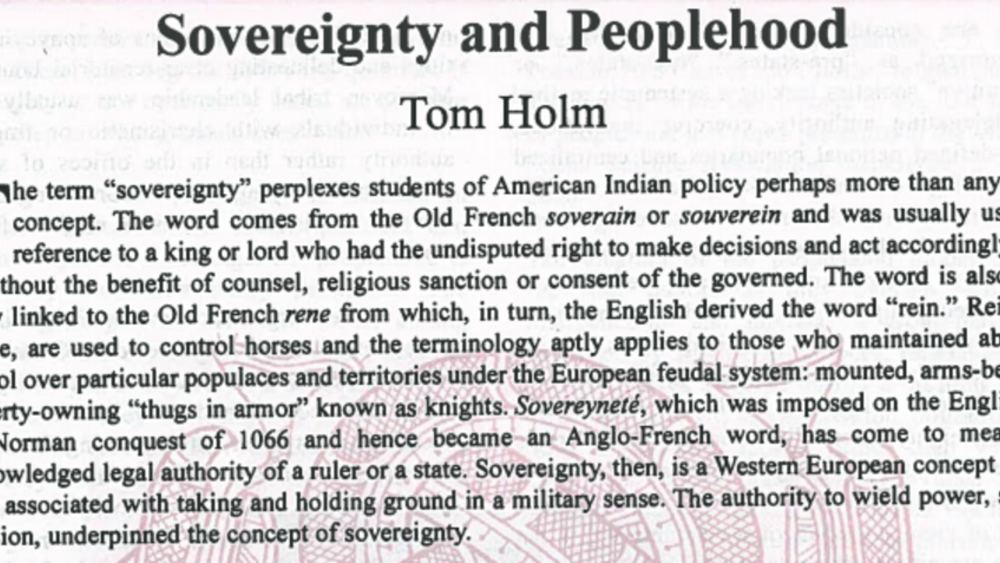Indigenous Governance Database
sacred history
Thumbnail or cover image

Sovereignty and Peoplehood
The term "sovereignty" perplexes students of the American Indian policy perhaps more than any other concept. The word comes from the Old French soverain or souverein and was usually used in reference to a king or lord who had the undisputed right to make decisions and act accordingly with or…
